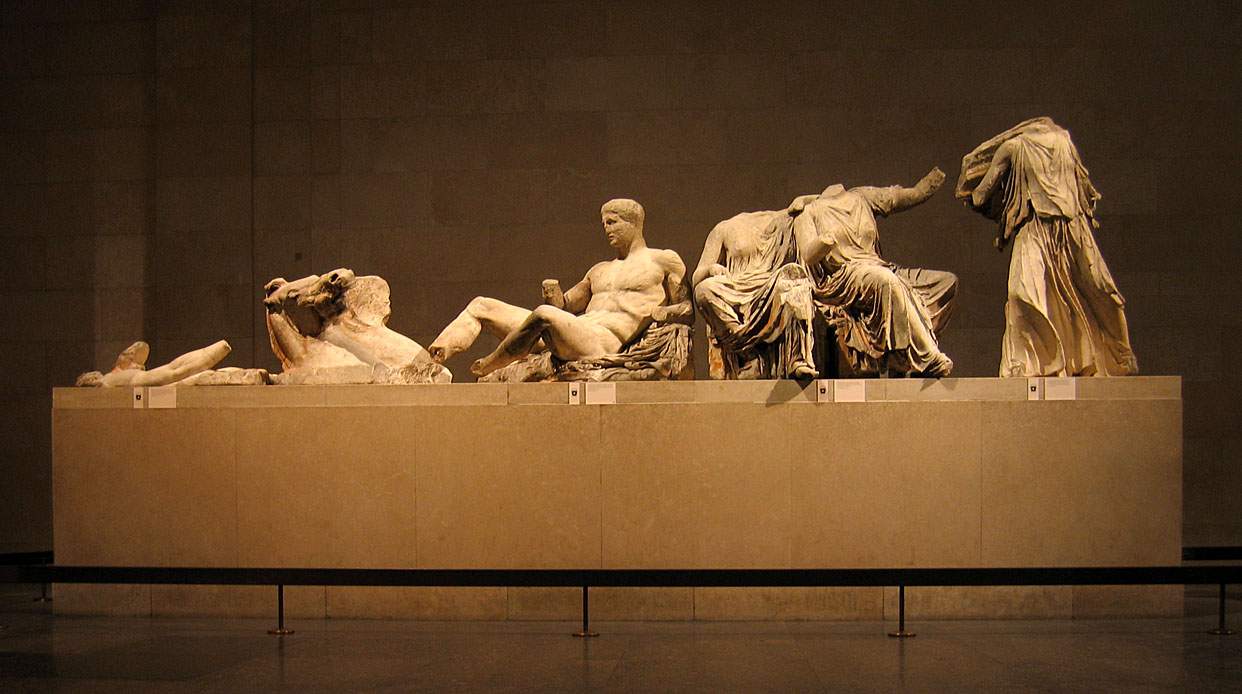Elgin Marbles: according to Greece, Brexit will favor restitution. And there is also the endorsement of Eike Schmidt
Greece is back on the issue of the Elgin Marbles, the Parthenon sculptures and decorations that, in the 19th century, were detached from the great temple at the behest of Thomas Bruce, Earl of Elgin, who, with the approval of the Ottoman Empire (on which Greece was dependent at the time), moved them to London, where they can still be seen today, in the halls of the British Museum. Ever since Greece gained independence from the Turks in 1832, it has never ceased to demand the return of the marbles from the British, since it considers them to have been illegally taken (the United Kingdom, on the contrary, takes the opposite view, since it considers the move to be a consequence of a legal contract between the British and the Ottoman Empire). And now the never-quenched friction between Greece and the UK is coming back to the fore after Brexit, which the Greeks say could favor the return of the works to Athens.
The latest updates, dating back to this fall, had seen Greece request the marbles on loan, but London had responded by saying it would only grant the works if the Greeks formally acknowledged British ownership. Britain’s exit from theEuropean Union, officially sanctioned last Jan. 31, however, could change the outlook. Greece’s minister of culture, Lina Mendoni, argues that: “The mentality has changed,” she told Reuters news agency, “and then there is the fact that the UK has moved away from the European family, and that two hundred years have passed since the Greek revolution. So I think there are the right conditions for a permanent return.”
For 2021, Greece is planning several celebrations to commemorate the 200th anniversary of the outbreak of the War of Independence, which was fought until 1832. And the Parthenon marbles have long been thought of as the protagonists of an event: so if, with the United Kingdom part of the European Union, one could not imagine much more than an exhibition with the marbles on loan, now the Greeks are dreaming of the permanent return of their works. Earlier, Lina Mendoni had also stated that “as the UK moves away from Europe and the ideas that Europe embodies, Greece, which is recovering from the crisis, will have the opportunity to attract attention and interest from an international audience in the years to come.” However, the British Museum is a tough nut to crack: it has already made it known that the Parthenon Marbles “are sculptures that are part of everyone’s shared heritage, and transcend cultural boundaries.”
On Greece’s side, however, surprisingly, is Uffizi director Eike Schmidt, who spoke on the issue today on the sidelines of the Florentine museum’s presentation of its 2019 results. “It would be a nice gesture,” Schmidt said, “if all European countries would show solidarity with Greece, and for Brexit, from Britain, instead of billions of pounds they would ask for the Parthenon marbles back.”
Pictured: the Parthenon pediment sculptures, east side, preserved at the British Museum. Ph. Credit Andrew Dunn
 |
| Elgin Marbles: according to Greece, Brexit will favor restitution. And there is also the endorsement of Eike Schmidt |
Warning: the translation into English of the original Italian article was created using automatic tools. We undertake to review all articles, but we do not guarantee the total absence of inaccuracies in the translation due to the program. You can find the original by clicking on the ITA button. If you find any mistake,please contact us.




























